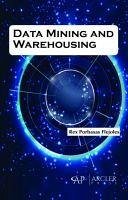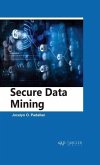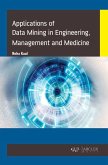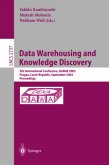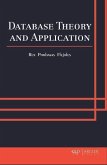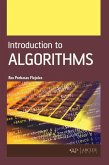Our abilities of both producing and gathering information have been expanding quickly. Contributing variables incorporate the automatization of business, logical, and government exchanges; the boundless utilization of computerized cameras, production apparatuses, and standardized tags for most business items; and improvements in information gathering devices extending from filtered content and picture stages to satellite remote detecting frameworks. Moreover, well-known utilization of the World Wide Web as a worldwide data framework has overflowed us with a huge measure of information and data. This incredible development in saving or transient information has produced a dire requirement for new methods and robotized instruments that can insightfully help us in changing the tremendous measures of information into valuable data and learning. This book investigates the ideas and procedures of data mining, promising and prospering boondocks in information and data frameworks and their systems. Data mining, likewise prevalently alluded to as learning revelation from information is the mechanized or helpful extraction of examples speaking to learning verifiable saved or caught in huge databases, data warehouses, the Web, other monstrous data archives, or information flows. Data mining is a multidisciplinary area, drawing work from regions including database innovation, machine learning, measurements, design acknowledgment, data recovery, neural systems, information based frameworks, counterfeit consciousness, superior registering, and information representation. We introduce strategies for the disclosure of examples covered up in huge informational indexes, concentrating on issues identifying with their achievability, helpfulness, viability, also, adaptability. Therefore, this book is not proposed as a prologue to database frameworks, machine learning, measurements, or other such zones, despite the fact that we do give the foundation fundamental in these zones keeping in mind the end goal to encourage the per user's understanding of their separate parts in data mining . Or maybe, the book is an extensive prologue to data mining, gave adequacy and adaptability issues in a center. It ought to be helpful for processing science understudies, application engineers, and business experts, and additionally, specialists engaged with any of the controls recorded previously. Data mining developed in the 1980s made awesome steps amid the 1990s, also keeps on thriving into the new millennia. This book exhibits a general picture of the area, presenting intriguing data mining methods and frameworks and talking about systems and research bearings. A critical inspiration for composing this book was the requirement to construct a sorted out system for the investigation of data mining --a testing assignment, attributable to the broad multidisciplinary nature of this quick creating field. We trust that this book will empower individuals with various foundations and encounters to trade their perspectives viewing data mining to contribute toward the further advancement and molding of this energizing and dynamic field.
Hinweis: Dieser Artikel kann nur an eine deutsche Lieferadresse ausgeliefert werden.
Hinweis: Dieser Artikel kann nur an eine deutsche Lieferadresse ausgeliefert werden.

